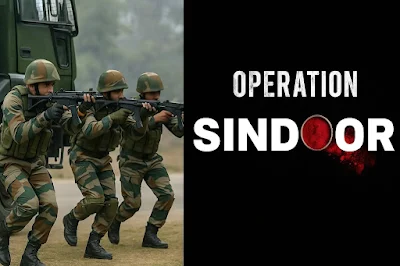New Delhi, May 9 – In the immediate aftermath of the April 22 terror attack in Pahalgam that claimed 26 innocent lives, Prime Minister Narendra Modi vowed justice and abruptly curtailed his official visit to Saudi Arabia. While public outrage swelled over the gruesome attack, marked by point-blank executions and religious profiling, the Indian government adopted a calibrated strategy—combining diplomatic pressure, public restraint, and strategic deception.
While high-level security consultations were underway behind closed doors, the Prime Minister maintained an outward posture of routine statecraft—attending public events, announcing major development projects, and finalizing international agreements. This deliberate display of normalcy served a dual purpose: preventing escalation and keeping adversaries off guard.
A Calculated Distraction
Between April 22 and May 6, PM Modi continued his public engagements, sending a subtle but strong message that governance and national priorities remained undeterred. On May 1, he addressed the World Audiovisual and Entertainment Summit (WAVES) 2025 in Mumbai, highlighting India's growing “orange economy”—the creative industries spanning media, gaming, and the arts.
On May 2, the Prime Minister inaugurated the Vizhinjam International Deepwater Seaport in Thiruvananthapuram, a project valued at ₹8,800 crore, aimed at transforming Kerala’s logistics infrastructure and reducing economic outflows.
Meanwhile, the Ministry of Home Affairs quietly ordered nationwide mock security drills scheduled for May 7, reinforcing internal preparedness while maintaining the impression of peacetime routine. Social media channels of government ministries actively promoted these exercises, contributing to the strategic cover.
Diplomacy in Motion
On the international front, the Ministry of External Affairs continued engagements with foreign dignitaries and members of the diplomatic corps. On May 6, India and the United Kingdom announced the conclusion of their long-awaited Free Trade Agreement (FTA) and Double Contribution Convention, signaling economic strength and global cooperation.
Simultaneously, the Indian Air Force issued a Notice to Airmen (NOTAM) for a two-day military exercise in Rajasthan along the Pakistan border beginning May 7. The operation, involving Rafale, Sukhoi-30, and Jaguar aircraft, was publicly described as a routine training drill.
All these moves were coordinated under a policy of strategic silence—with no official commentary from the Ministry of External Affairs or the Defence establishment in response to the Pahalgam attack. This silence, however, masked the meticulous planning underway for a precise military retaliation.
Operation Sindoor: A Precision Strike
In the early hours of May 8, India launched Operation Sindoor, striking nine terror facilities across Pakistan and Pakistan-occupied Kashmir. These included the Jaish-e-Mohammed headquarters in Bahawalpur and the Lashkar-e-Taiba compound in Muridke. The strikes were reportedly successful, catching Pakistan’s security apparatus off-guard, and even sparking questions among its citizens regarding their preparedness.
A Measured Yet Resolute Message
Through this strategy of measured escalation, India delivered a clear message: national security is paramount, and retaliation—when it comes—will be precise, timely, and devastating. While Prime Minister Modi, Home Minister Amit Shah, and Defence Minister Rajnath Singh addressed the Pahalgam tragedy in public statements, India's actual response was revealed only through its actions—not its words.
At the United Nations, Deputy Envoy Yojna Patel raised the issue firmly, underscoring India’s global stance against terrorism. The broader diplomatic, military, and strategic choreography underscores New Delhi’s resolve to respond on its own terms—calmly, confidently, and decisively.




.png)
The opinions posted here do not belong to 🔰www.indiansdaily.com. The author is solely responsible for the opinions.
As per the IT policy of the Central Government, insults against an individual, community, religion or country, defamatory and inflammatory remarks, obscene and vulgar language are punishable offenses. Legal action will be taken for such expressions of opinion.